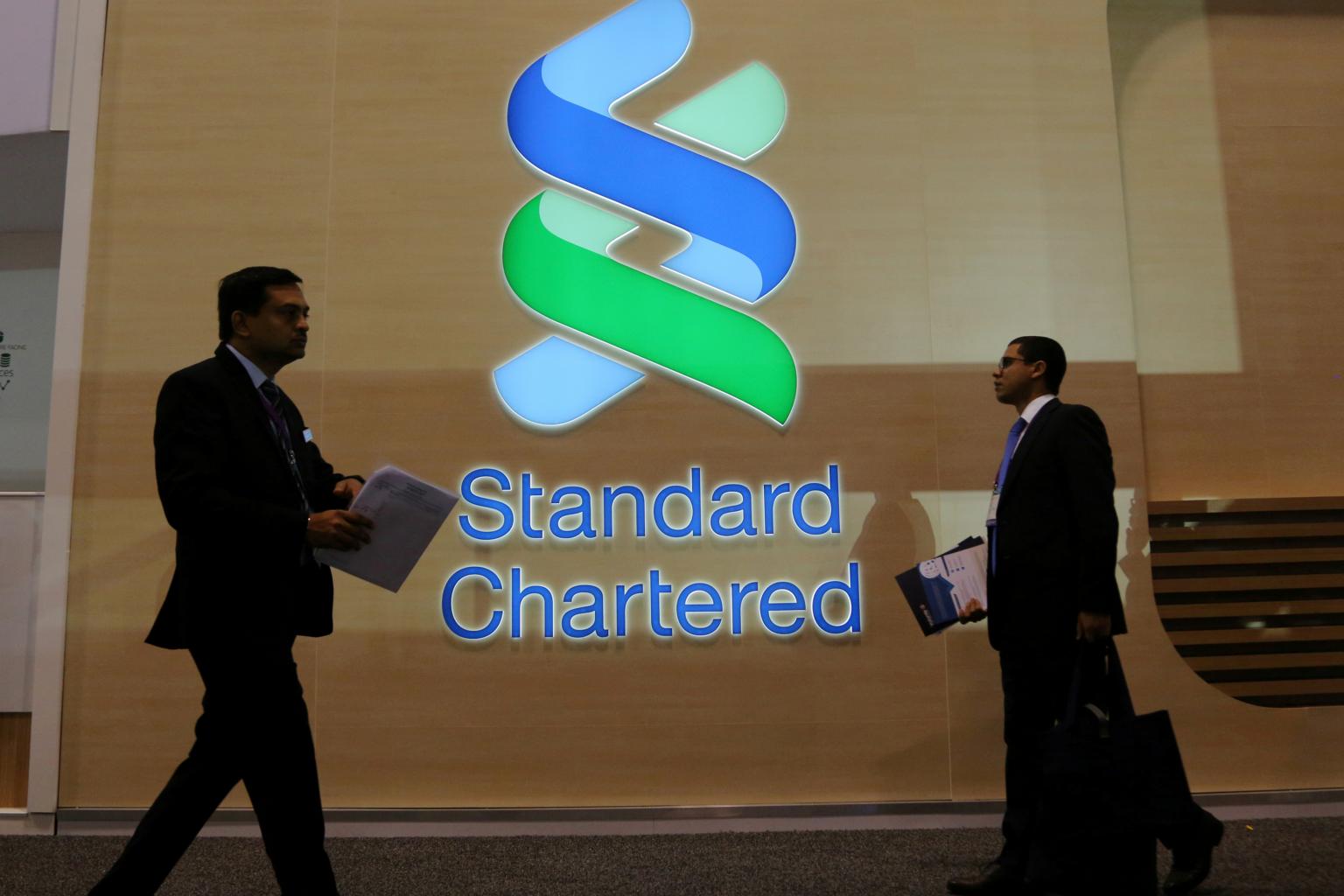StanChart unveils permanent move to flexible working from 2021
Sign up now: Get ST's newsletters delivered to your inbox

The bank said about 60 per cent of staff surveyed in this first phase have accepted its offer for some form of hybrid work.
PHOTO: REUTERS
LONDON (BLOOMBERG) - Standard Chartered plans to offer flexible work options to more than 90 per cent of its 85,000 staff over three years, a sign of how pandemic crisis management is leading to long-term change in the role of the office.
The bank said about half its staff will be able to apply for some form of hybrid work from early 2021. Standard Chartered expects the programme to apply to about 75,000 workers in 55 markets by 2023.
The London-based company is also in talks with a third-party firm to provide "near-home" workspaces for staff, according to a memo seen by Bloomberg News. The plan follows a survey of staff in the UK and Asian hubs that asked whether employees preferred to work from the office as usual, switch to work-from-home or near-home options, or split their time between different venues.
Standard Chartered has said it's looking at office leases carefully in an environment where lenders are under pressure to control costs, even before Covid-19's disruption to the world economy. While some bank bosses like Jamie Dimon want their staff back in the workplace, others are leaning towards the approach at Standard Chartered - where chief financial officer Andy Halford recently said "the word 'office' will become a bit of a thing of the past". The bank didn't disclose the name of the third-party workspace provider.
"While we have been thinking through the issues around future workplace for some time, it's inevitable that recent events provided a catalyst," Tanuj Kapilashrami, the bank's head of human resources, said in the memo.
OFFERS ACCEPTED
Standard Chartered said about 60 per cent of staff surveyed in this first phase have accepted its offer for some form of hybrid work. Early feedback shows that about two-thirds of staff in Singapore are in favour of some form of hybrid working; that proportion rises to 76 per cent in the UK and 79 per cent in the US.
"It is anticipated most employees will fall into a hybrid pattern, ie some days in the office and some days working from home," the bank said.
Deutsche Bank chief executive officer Christian Sewing said in September that the German lender was examining how employees could split their time between the office and home. Other lenders looking at similar moves include Mizuho Financial Group and Fifth Third Bancorp as banks see the opportunity to shed expensive city-centre locations.
Sceptics of this trend include BlackRock's Larry Fink and recently departed UBS Group boss Sergio Ermotti. Mr Dimon, who runs JPMorgan Chase & Co, has said that working remotely for too long could decrease productivity.
With more companies reassessing their real estate portfolios, the office rental market is already taking a hit. Vacancy rates in the City of London reached 6.5 per cent at the end of September, up from 5.6 per cent a year earlier, while the average rent for space in the Square Mile dropped 11.9 per cent year on year.


